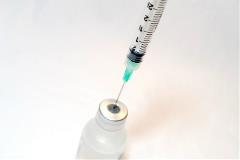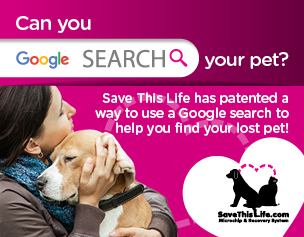Leave the Vaccinating to the Veterinarians!

When talking to horse clients about the importance of vaccinating their animal, adding the following conversation points might benefit a discussion on reasons to avoid do-it-yourself vaccinations.
Information that Clients Might Not Be Aware Of Regarding Horse Vaccinations
- Types of vaccines available for use in horses:
- Inactivated or killed vaccine
- Use units of the infectious organism that has been killed through a manufacturing process
- Unable to replicate to cause disease
- Relies on surface antigens and adjuvants
- Modified live vaccines
- Use actual live infectious organism that has been modified through a manufacturing process
- Capable of replicating, but unable to cause disease
- Contains an adjuvant
- Recombinant vaccines
- Delivers spliced gene-sized DNA fragments from a virus or bacteria to the horse, to stimulate disease immunity
- Does not use adjuvants
- Inactivated or killed vaccine
- Core and noncore vaccines
- Core vaccines are ones that should be given to all horses, on a schedule
- Noncore vaccines are ones that only certain animals require
- Multivalent Vaccines
- Combination packets of core vaccines that include preventives for several diseases
- Concerns regarding use of these packets includes:
- Not all multivalent vaccines contain the same combination of antigens
- It is important to know exactly what each horse needs, and what each vaccine covers
- When issued incorrectly, they are thought to have the potential to cause adverse reactions or to overwhelm the animal’s immune system
How Horse Vaccines Fail
- Vaccines can be rendered ineffective, and failure can be caused by:
- Improper technique, for instance:
- When injection is to be given deep in a muscle, but given under skin
- Improper handling of syringes can cause:
- Failure
- Infections at the injection site
- Post-vaccine fibromas
- Improper storage results when vaccines are:
- Left unrefrigerated
- Frozen
- Exposed to direct sunlight
- Improper administration
- When given to an already stressed animal, such as a horse with:
- Weakened immune system
- Poor nutrition or body condition
- Animal has already been exposed to disease; if it has not had enough time to develop antibodies, it will become sick
- Dividing dosage between two horses can result in protecting neither animal and both becoming ill
- Also, diseases can be transmitted from horse to horse if shots are administered and needles are shared between horses
- Not following time recommendations for when and how often to administer shots or boosters will leave an animal unprotected and at risk
- When given to an already stressed animal, such as a horse with:
- Improper technique, for instance:
- Additional reasons for vaccines to become ineffective include:
- Being outdated or expired
- Mixed with diluent, but not promptly given
- Being given with a dirty syringe
Adverse Reactions to Horse Vaccines
Clients need to know that:
- Incorrectly delivering a vaccine can cause a life-threatening reaction, for instance:
- Delivering a vaccine intravenously instead of subcutaneously
- Intra-nasal vaccine given parenterally
- Animals can suffer a reaction to receiving a vaccine even if they have been vaccinated and showed no difficulties before
- Most vaccine reactions are caused by the animal’s response to the adjuvant or other component within a vaccine
- Adverse reactions can be:
- Not life-threatening, indicated by:
- Heat and swelling at the site of the reaction
- Disappearing within a few days
- Painful, causing horse to go off feed and refuse to exercise
- Nonsteroidal anti-inflammatory agents may be needed
- Sometimes caused by poor injection techniques, that cause:
- Abscess that will have to be drained and antibiotics administered
- Often causes a vaccine failure requiring need to administer additional vaccination once the infection has completely healed
- Anaphylaxis, severe reaction indicated by:
- Body reacting immediately to the antigens
- Blood pressure drops
- Severe breathing difficulties
- Animal may collapse
- Life-threatening condition
- Not life-threatening, indicated by:
Clients should be informed:
- Anaphylactic reaction can occur within minutes or up to a few hours after the administration of the vaccine
- Veterinary intervention is needed immediately or the animal may die
Final Important Pieces of Information to Pass on to Clients Regarding Horse Vaccines
- State public health and law enforcement officials will not recognize the administration of a rabies vaccine unless it is administered by a licensed veterinarian
- Clients that travel across state lines with their horses may be required to present shot records that have been issued by a licensed veterinarian.
Offering clients information to educate and point out the risks involved when vaccinating their own animal may help them see the advantage of handing this responsibility over to the veterinarian.
Interested in hearing more about equine diseases and ways to talk about them with clients? Contact your Covetrus representative at 855.724.3461.
Sources:
Horse Owner’s Veterinary Handbook, 3rd ed., by T. Gore, P. Gore, J.M. Giffin


Working Here
Our team members are encouraged to be the best they can be... at Covetrus we believe we impact one another.
Learn MoreNews & Events
FDA Cautions Pet Owners Not to Feed Texas Tripe Inc. Raw Pet Food Due to Salmonella, Listeria Monocytogenes
The U.S. Food and Drug Administration is cautioning pet owners not to feed their pets any of the Texas Tripe brand raw frozen pet food listed below because several samples of Texas Tripe raw pet food have tested positive for Salmonella and/or L. mono.
Careers
Are you looking for a place to let your talents shine? At Covetrus, we help our practitioner customers better serve their patients and take pride in providing the best customer experience possible. Search our open positions to see our available opportunities.
Newsletter
Stay current with what’s going on with Covetrus, subscribe to receive our newsletter and email communications. Subscribers will receive the latest information in practice management, sales and marketing, animal health, and more.



-3-(1).png?sfvrsn=2d806d73_0)

Leave a comment